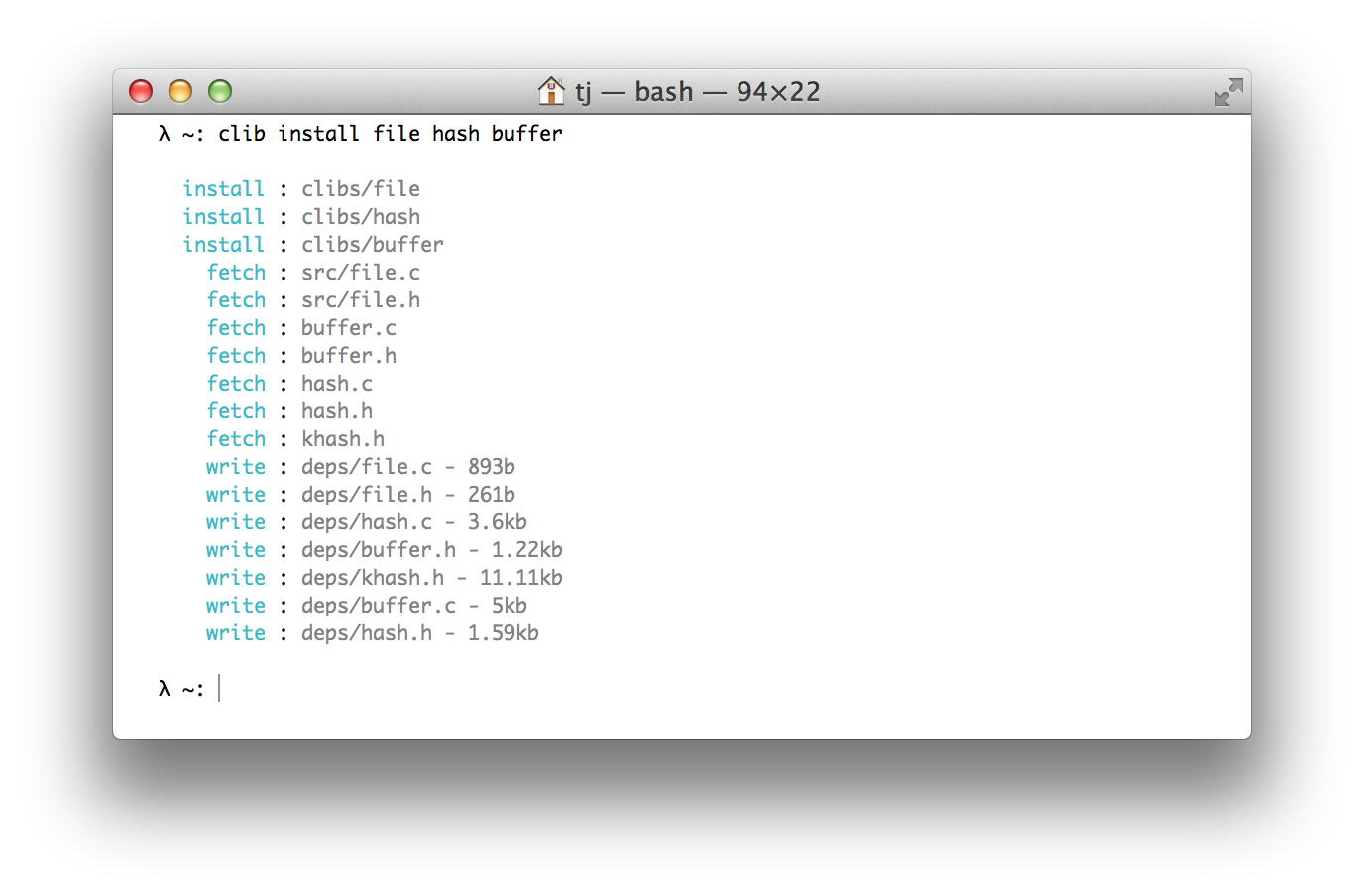clib(1)
Package manager for the C programming language.

install libcurl
$ sudo apt-get install libcurl4-gnutls-dev -qq
clone
$ git clone https://github.com/clibs/clib.git /tmp/clib && cd /tmp/clib
build
$ make
put on path
$ sudo make install
Fedora:
```sh
# install libcurl
$ sudo dnf install libcurl-devel
# clone
$ git clone https://github.com/clibs/clib.git /tmp/clib && cd /tmp/clib
# build
$ make
# put on path
$ sudo make install
About
Basically the lazy-man’s copy/paste promoting smaller C utilities, also
serving as a nice way to discover these sort of libraries. From my experience
C libraries are scattered all over the web and discovery is relatively poor. The footprint of these libraries is usually quite large and unfocused. The goal of clibs is to provide
stand-alone “micro” C libraries for developers to quickly install without coupling
to large frameworks.
You should use clib(1) to fetch these files for you and check them into your repository, the end-user and contributors should not require having clib(1) installed. This allows clib(1) to fit into any new or existing C workflow without friction.
The wiki listing of packages acts as the “registry” and populates the clib-search(1) results.
Examples
More examples and best practices at BEST_PRACTICE.md.
Install a few dependencies to ./deps:
$ clib install clibs/ms clibs/commander
Install them to ./src instead:
$ clib install clibs/ms clibs/commander -o src
When installing libraries from the clibs org you can omit the name:
$ clib install ms file hash
Install some executables:
$ clib install visionmedia/mon visionmedia/every visionmedia/watch
Articles
- Introducing Clib - introduction to clib
- The Advent of Clib: the C Package Manager - overview article about clib